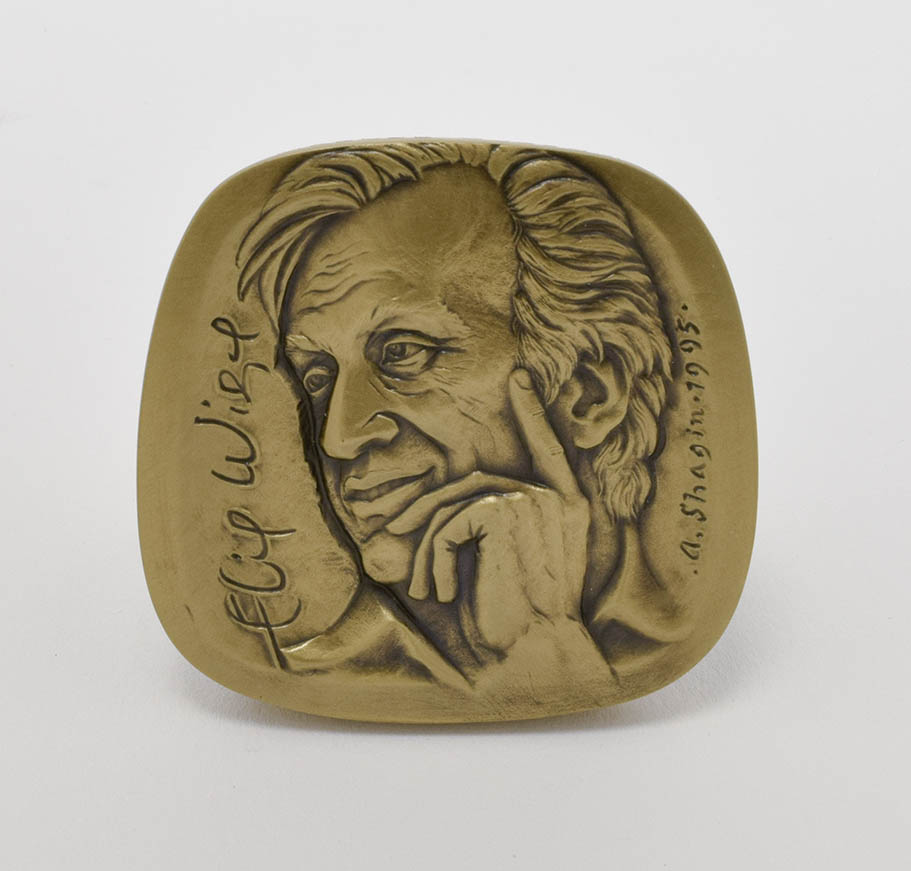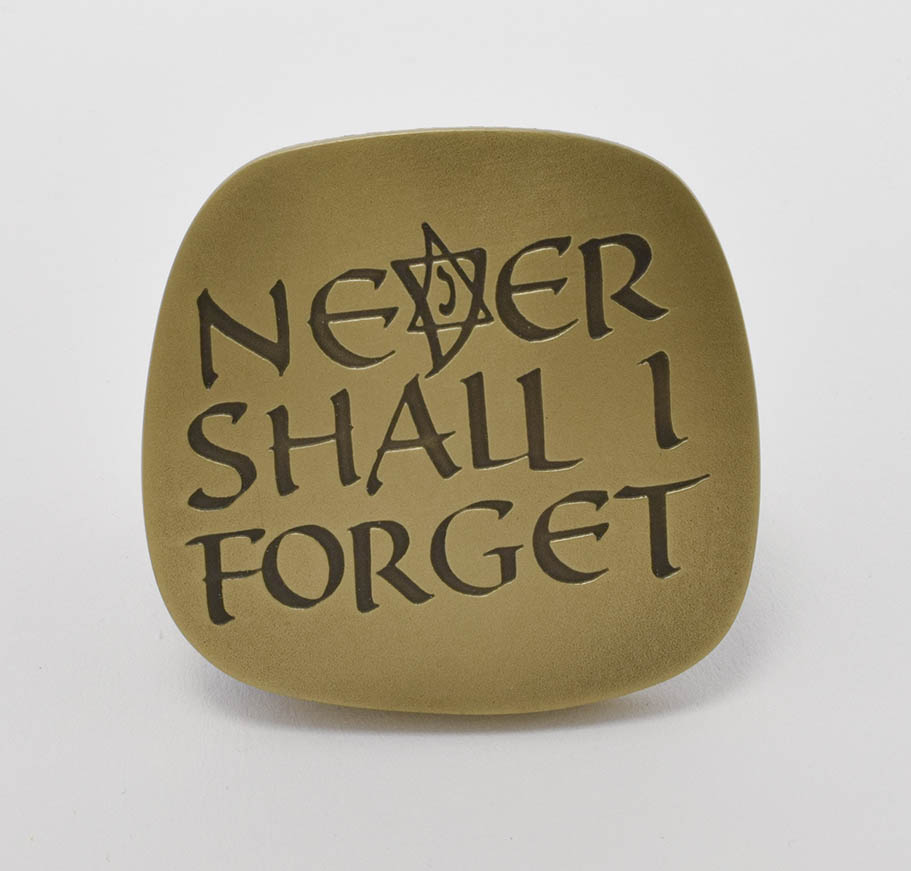Elie Wiesel (1928-2016)
Alex Shagin (b. Russia, 1947)
USA, 1995
Bronze, h. 1 ¾ x w. 1 ¾ in.
Cincinnati Skirball Museum, Jewish-American Hall of Fame Collection, gift of Mel and Esther Wacks, Debra Wacks, and Shari Wacks, 2019.7.53
Elie Wiesel was born in the town of Sighet, now part of Romania. In 1944, the Nazis deported Sighet’s 15,000 Jews to Auschwitz, where Wiesel’s mother and younger sister died in the gas chambers. His father died later on a forced march to Buchenwald. Wiesel and his two older sisters survived. Liberated from Buchenwald in 1945 by advancing Allied troops, Wiesel was taken to Paris where he studied at the Sorbonne and worked as a journalist. Not until 10 years after his release from Buchenwald did Wiesel begin writing about the Holocaust. His first memoir of his experience in the concentration camps, And the World Remained Silent, appeared in Yiddish, and four years later it was published in English as the novel Night. This was followed by over two dozen semi-autobiographical novels, plays and essays, all bearing witness to the Holocaust. In 1957, Wiesel joined the staff of The Jewish Daily Forward, a Yiddish-language newspaper in New York; he became a United States citizen in 1963. Among other teaching posts, he was a professor at City College of New York and Boston University. In 1978, Elie Wiesel was named chairman of the President’s Commission on the Holocaust, created by President Jimmy Carter. When presenting Elie Wiesel with the Nobel Peace Prize in 1986, Egil Aavik said “Wiesel’s commitment, which originated in the suffering of the Jewish people, has been widened to embrace all oppressed peoples and races.” In his acceptance speech, Professor Wiesel commented, “I have tried to keep memory alive. I have tried to fight those who would forget. Because if we forget, we are guilty, we are all accomplices.”


